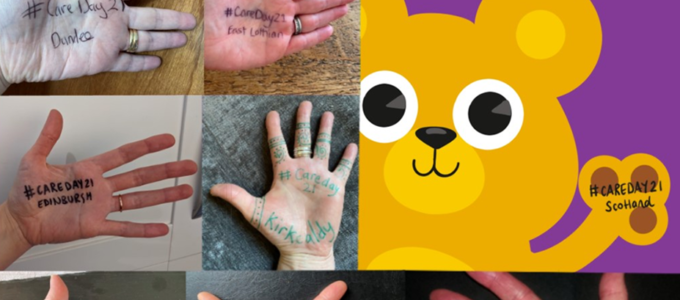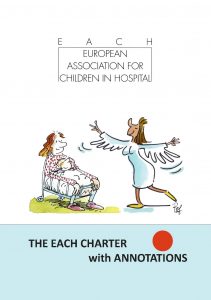
Care Day 2021 is an international celebration that brings together the Care-Experienced Community, and their allies, to raise awareness about shifting public attitudes, accessing rights, and sparking important discussions.
Care Day was first launched in 2015 to mark the one-year anniversary of the Children and Young People (Scotland) Bill 2014, which committed to strengthening support services for children and young people, particularly for those in the Care-Experienced Community.
Despite a huge amount of progress in both the support available to Care-Experienced children and young people, and in tackling public misconceptions and stigma towards this community, there is still much more to be done. The term ‘looked-after’ describes children and young people who are in the care of a local authority, and it is a common misconception that many of these children are placed in care due to them being ‘difficult’ or committing offences. In fact, in 2019, less than a quarter of the children referred to the Children’s Hearing System was on offense grounds. The main reason that children and young people go into care is for their own care and protection.
The number of looked after children and young people in Scotland has been decreasing for several years, with just over 14,000 children being ‘looked after’ in Scotland in 2019. Foster care is the most common kind of looked-after care for children and young people, closely followed by those in Kinship Care. Kinship Care is when a child is looked after by a family member who is not their mother or father, most commonly a grandparent. These families face unique challenges when it comes to supporting children and young people to access their rights and build positive relationships.
Children’s Health Scotland has been working with Kinship Carers for many years to provide training and support. Anne Wilson, the Head of Development for Children and Young People In and Leaving Care, had this to say about #CareDay21,
A massive shout out to all those in Kinship care and their carers. Under UNCRC 39, Right to Recovery, all children and young people, and in particular those who are Care-Experienced, have the right to recovery from any abuse, neglect, harm or maltreatment.
Anne went on to say,
By staying with family, Kinship care is often the best way to support these children and young people. The grandparents, aunts, uncles and other family members and friends who step up to help are too often the unsung heroes in these children’s lives, and are often unprepared for such a huge task. This is why Children’s Health Scotland, and other organisations, are so essential, as we provide bespoke workshops on a range of health-related topics to support Kinship Carers in the care of their children.
For Care Day, our Children’s Health and Wellbeing Assistant, Izzie Turley, caught up with Marie Campbell from Nurture Scotland, and Glenda Keen, who is a Kinship Carer to her two grandchildren and the Deputy Chair of her local Kinship Carers support group, to talk about some of these issues and explore how public attitudes towards children in Kinship Care has changed over time.
A huge thank you to Glenda and Marie for taking the time to have this important discussion and to raise awareness of the challenges faced by Kinship Carers and the families they support. For more information on training programmes available from Children’s Health Scotland, visit our website or contact enquiries@childrenshealthscotland.org .
More information on these statistics can be found at the Who Cares? Scotland website.
